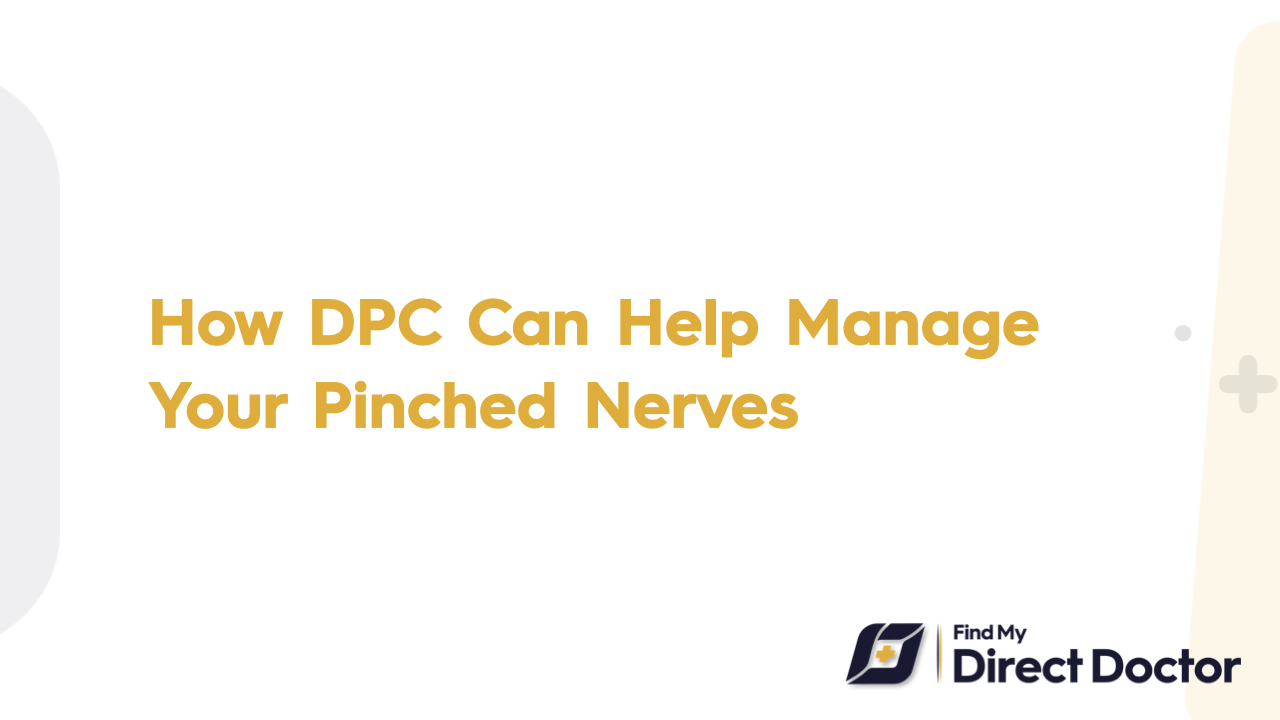



When surrounding tissues like bones, cartilage, muscles, or tendons put too much pressure on a nerve, it might result in a pinched nerve. Pain, tingling, numbness, or weakening in the affected location may result from this pressure's disruption of the nerve's normal function. Pinched nerves are frequently found in the wrists, back, and neck. Depending on where the pinched nerve is located, people may feel radiating pain or discomfort, usually in the arms, legs, or lower back. In extreme situations, a pinched nerve may result in the affected portion losing its ability to move or function.

People with pinched nerves may benefit from a more individualized and hands-on approach to care through Direct Primary Care (DPC). Patients can more easily contact their healthcare providers in a DPC setting, which enables timely diagnosis and treatment. In order to reduce pressure on the nerve, DPC physicians might advise patients on conservative management methods including stretching, physical therapy, or good posture. To provide a customized approach to healing, DPC also provides ongoing follow-up care to monitor progress and modify treatment programs as needed.
DPC has many advantages for people with pinched nerves, such as longer consultations, lower wait times, and more reliable care. Patients can treat their symptoms faster and lower their risk of long-term nerve damage when they have direct access to their primary care physician. Each patient will receive customized treatment regimens that take into consideration their unique demands and lifestyle thanks to DPC's customizable approach. This makes it possible to treat pinched nerves more thoroughly, enhancing total healing and averting recurrence.
Customizing treatment to meet each patient's specific needs is the main goal of personalized care of pinched nerves in DPC. In order to reduce nerve compression, DPC providers might recommend lifestyle changes, evaluate the severity of the disease, and recommend exercises or therapies. Patients can receive continuous support and treatment plans can be adjusted in response to progress with more regular check-ins. In addition to ensuring that patients receive the best treatments for their particular disease, this individualized care encourages a comprehensive approach to controlling pinched nerves and averts further flare-ups.
Previous Post
Next Post